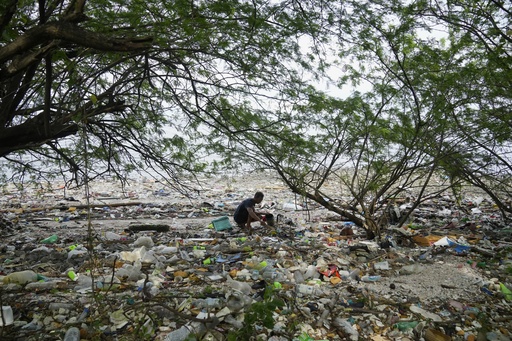
The global community continues to struggle in its efforts to collaboratively address multiple environmental crises, as recent assemblies sponsored by the United Nations reveal numerous shortcomings. Initiatives aimed at combating climate change, tackling plastic pollution, halting the loss of biodiversity, and preventing desertification have either stalled or yielded minimal results that fail to adequately respond to the scope of these pressing challenges. Reflecting on this situation, activist Greta Thunberg’s earlier remark dubbing these discussions “blah-blah-blah” has resonated with many young environmental advocates.
Alden Meyer, a seasoned analyst in climate negotiations, expressed his concern that many people seem disconnected from the gravity of the situation. According to him, failing to feel a sense of grief regarding the current state of the world indicates a lack of understanding of the ongoing crises. Through the perspectives of more than 20 experts, it has become evident that multilateral environmentalism struggles under a cumbersome consensus mechanism, the sway of the fossil fuel sector, and an increasingly fragmented geopolitical landscape, compounded by the monumental problems at hand.
While there are slight advancements, particularly in addressing climate change, many agree that these efforts are insufficient and progress remains painfully slow. Inger Andersen, the Executive Director of the United Nations Environment Programme, acknowledged the frustrations within the process but maintained that it is essential for representing the interests of smaller and developing nations alongside wealthier countries. As she noted, “I wouldn’t classify it as an outright failure.”
The situation starkly contrasts with the optimism of 1987, when the world successfully adopted a treaty to protect the ozone layer by banning harmful chemicals. This success was followed by the establishment of the Conference of Parties (COP) in 1992, which aimed to create a structured approach for addressing environmental issues. However, subsequent COP meetings have generally failed to produce substantial agreements. The recent biodiversity COP in Cali, Colombia ended without any significant commitments, barring recognition of Indigenous contributions. Similarly, the climate COP in Baku, Azerbaijan announced financing increases for poorer nations, yet many deemed it inadequate. A plastics pollution meeting in South Korea and a desertification summit in Saudi Arabia also resulted in little to no agreement on critical issues.
Johan Rockstrom, director of Germany’s Potsdam Institute for Climate Impact Research, summarized these meetings as reflecting a broader trend of failure. Former U.N. climate chief Christiana Figueres commented on the shift in attitude from a cooperative approach to one of adversarial conflict, which she believes hampers meaningful progress.
Panama’s lead negotiator, Juan Carlos Monterrey, emphasized the profound dysfunction within the current framework. He expressed a sentiment of disillusionment, indicating that nations may have to independently tackle environmental issues or form small coalitions. Others, like Harjeet Singh from the Fossil Fuels Non-Proliferation Treaty, see potential in developing “climate clubs,” which are collaborative groups among select countries.
The calls for a reimagining of the negotiation process have been reiterated by various advocates. Former Vice President Al Gore criticized the repetition of ineffective strategies, arguing for a shift towards decision-making based on supermajority rules rather than consensus. Experts highlighted the historical influence of fossil fuel lobbying which has often stymied decisive action in climate talks.
Complexities within global power dynamics have also evolved since the days when two superpowers could facilitate progress relatively easily, as emphasized by Princeton’s Michael Oppenheimer. Today’s international landscape is characterized by greater fragmentation, with each nation focused on its own interests while still making domestic advancements in climate actions.
Despite the hurdles, U.N. Climate Secretary Simon Stiell pointed out that global cooperation remains essential. Without it, the world is jeopardized by severe temperature increases. Many experts hold onto hope for the future, driven by a commitment to the well-being of present and future generations. Climate activist Mitzi Jonelle Tan articulated that losing hope equates to abandoning lives and experiences, underscoring the essential nature of perseverance in the fight for environmental justice.

